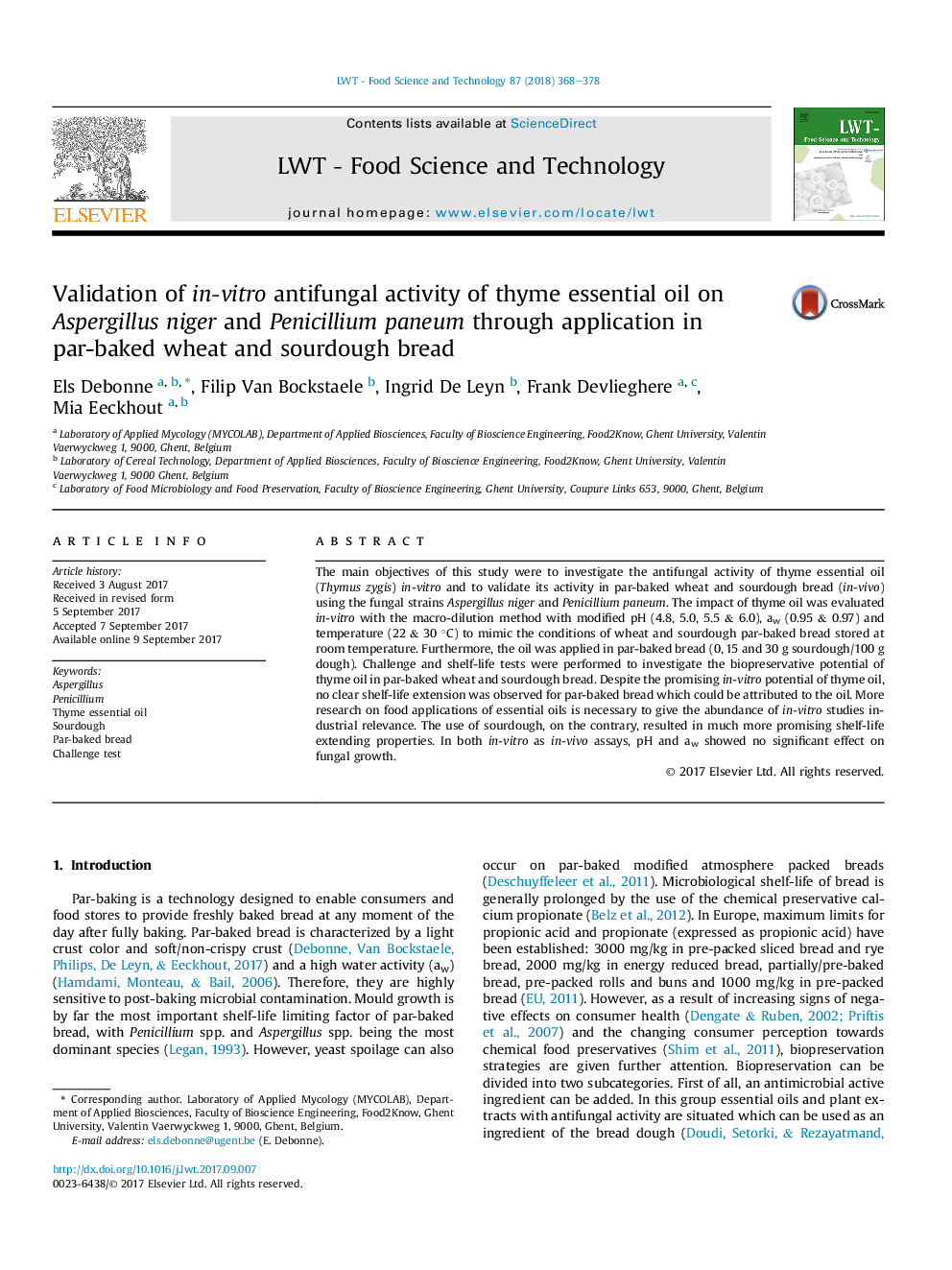| Article ID | Journal | Published Year | Pages | File Type |
|---|---|---|---|---|
| 5768625 | LWT - Food Science and Technology | 2018 | 11 Pages |
â¢No significant effect of pH and aw on growth of A. niger and P. paneum was observed.â¢No clear antifungal effect of thyme oil was observed on the par-baked bread.â¢The use of sourdough resulted in promising shelf-life extending properties.â¢The shelf-life extending activity of sourdough is not pH-related.â¢No antifungal synergistic effect was observed between thyme oil and sourdough addition.
The main objectives of this study were to investigate the antifungal activity of thyme essential oil (Thymus zygis) in-vitro and to validate its activity in par-baked wheat and sourdough bread (in-vivo) using the fungal strains Aspergillus niger and Penicillium paneum. The impact of thyme oil was evaluated in-vitro with the macro-dilution method with modified pH (4.8, 5.0, 5.5 & 6.0), aw (0.95 & 0.97) and temperature (22 & 30 °C) to mimic the conditions of wheat and sourdough par-baked bread stored at room temperature. Furthermore, the oil was applied in par-baked bread (0, 15 and 30 g sourdough/100 g dough). Challenge and shelf-life tests were performed to investigate the biopreservative potential of thyme oil in par-baked wheat and sourdough bread. Despite the promising in-vitro potential of thyme oil, no clear shelf-life extension was observed for par-baked bread which could be attributed to the oil. More research on food applications of essential oils is necessary to give the abundance of in-vitro studies industrial relevance. The use of sourdough, on the contrary, resulted in much more promising shelf-life extending properties. In both in-vitro as in-vivo assays, pH and aw showed no significant effect on fungal growth.
